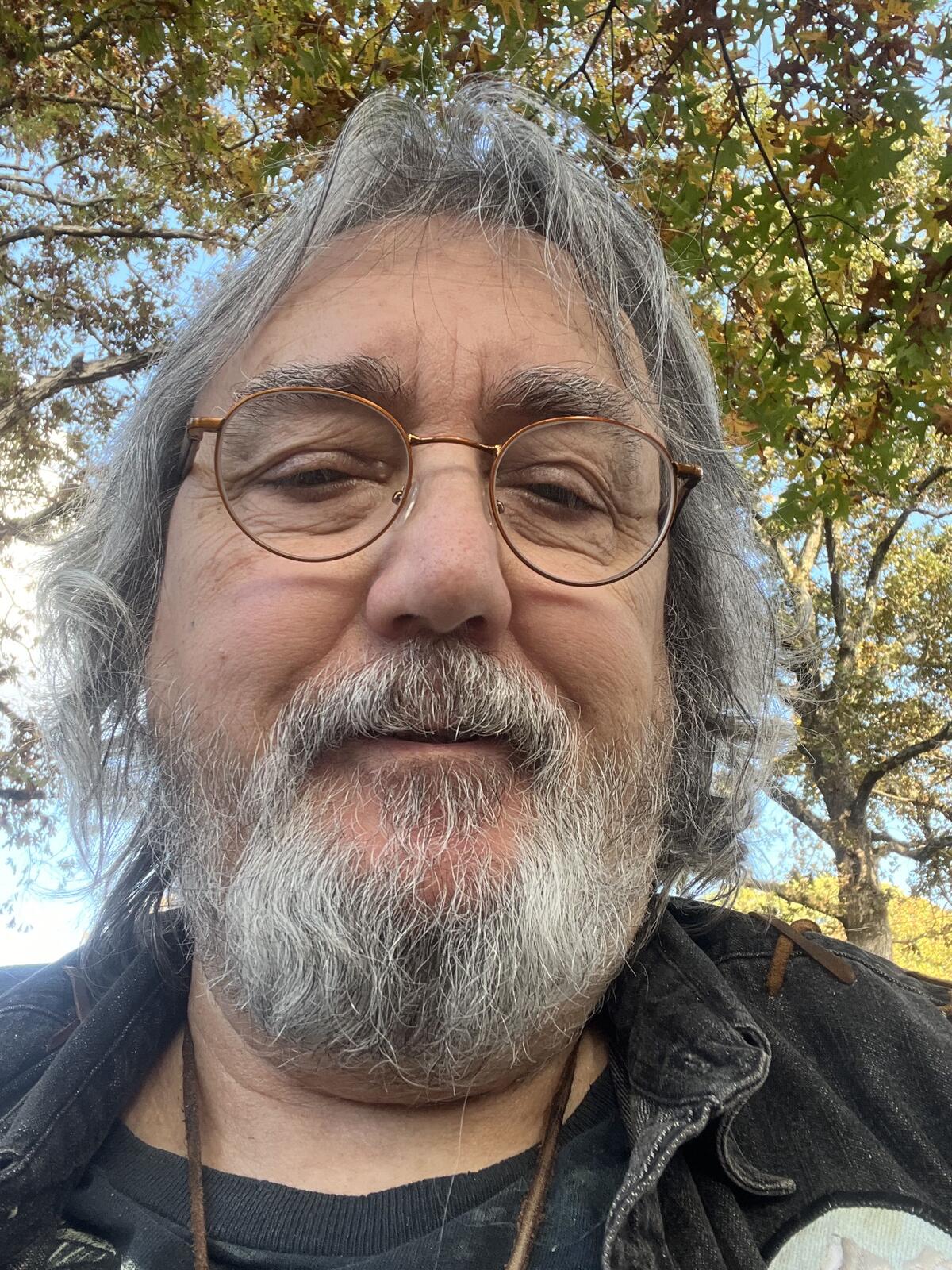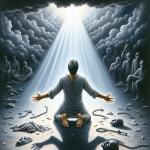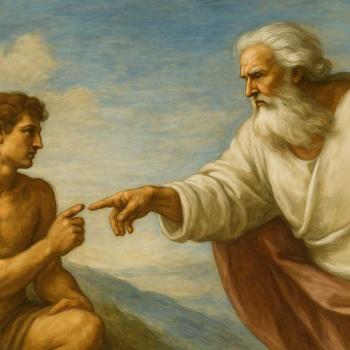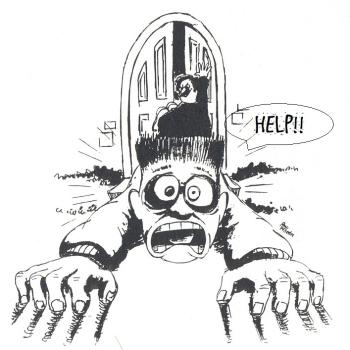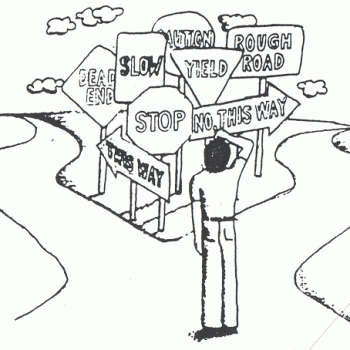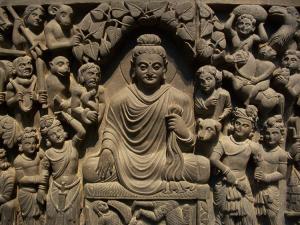
When using the term ‘enlightenment’ I would venture to say that most people immediately think of Buddhism or some Eastern Indian religion. I would like to propose it is not exclusive to Buddhism and far Eastern religions and it isn’t some mystical out-of-body experience as I have heard various gurus from India expound.
Like many aspects of spirituality, this is usually one of those carrots dangled just out of reach of the regular person so the person who claims it can be admired and appear to be god-like in some way. I have listened to many gurus from India who claim to be divine and dangle their enlightenment before ignorant and naïve followers who often are more than willing to pay out tons of money for their seminars, books and videos, which in most of these cases is their true motivation anyway; bilking the sheep and making money. Indian gurus are not the only ones guilty of bilking their flocks though, there are plenty of TV evangelists who claim to be Christians who do the same as well as various cults. I am amazed and saddened that intelligent human beings can be so easily deceived. Educated people, lawyers and CEO’s give away all their money in some cases to follow this or that enlightened one. Extreme examples would be Jim Jones’ followers of the Peoples Temple in 1978. This cult started out in America and his followers gave up everything to move to Guyana and he ultimately persuaded 900 people; men, women and children, to drink poisoned Kool-aid and die. 1997 Marshall Applewhite of the Heaven’s Gate cult convinced the men of his cult to be castrated and eventually convinced 21 women and 18 men to drink poisoned vodka so their fleshly bodies could be shed and their real selves could join a spacecraft embedded in the Hale Bopp comet that passed close to the Earth that year.
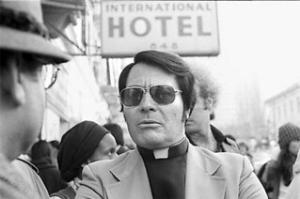
So what is enlightenment?
I love Raven Cain’s definition of enlightenment. He is a Buddhist priest and friend from Utah. He describes it as “A state of ‘Awake’ a condition of being fully actualized, and enlightened. Awake from the illusions that cling to the mind, Awake from the unnecessary resentment in the hearts of man. Awake from the blinders on the eyes of humanity. Awake from the lack of compassion, Awake from the harmful word. Awake from the lost, Awake from the confusion. Awake from the cause of suffering. Their eyes are no longer veiled with a conditioned film like those of the Sleepwalker. They are no longer attached to the words like the Seeker and unlike the Pathwalker they have had a direct experience of the ‘Ah-Ha’. They are at peace, free, and authentically themselves. They are AWAKE!”
I also love Sunni Gail, a contemporary writer and thinker’s definition: “I think part of it is being in a place where you can take any piece of information and get something out of it.”
And before we get into the deeper aspects of enlightenment I also would like to offer my simple definition of enlightenment as I see it:“I don’t think it is some super-duper spiritual one-of-a-kind exclusive only to one religion experience. In brief, it is that moment of awakening where your relationship with God and life are at peace. It is clarity. It is casting off chains of interpretation of religious moorings. I think it applies to many people of many cultures and their journey that brought them to their moment of clarity. It is a time you come to where the inner struggle ceases and you just know that you know that you know. It isn’t religious. It may come to you due to your religious or spiritual path but I don’t think it is exclusive to any particular religion.”—Benjamin Raven Pressley
Allow me to give you an idea of who I am. I consider myself a spiritual person, not religious. I am a follower of Jesus Christ and the apostles’ teachings but do not allow any particular church, denomination or religious organization to interpret to me what being a follower of Christ means for me. I consider myself open-minded and have friends of varying beliefs Christian, pagan, Wiccan, Buddhists, atheists, deists, theists, New Agers…just to name a few. But I don’t allow them to interpret what spirituality means to me either. That being said I hope you will read on as I explore the topic of enlightenment.
At its simplest and most literal definition enlightenment is the shedding of light and expelling darkness. That can be as literal as turning on a light in a dark room or it can be extrapolated out more abstractly into a spiritual experience which is what this writing is about.
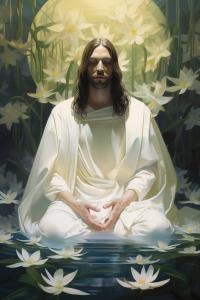
The fact is we are composed of spirit, soul and body. I go into more detail on this subject here but briefly, the human spirit is that part of us that is our higher consciousness, where our intuition and conscience reside. It is the seat of our moral compass and depending on how much we train ourselves to listen to this part of us the better person we are morally. It is also where we spiritually discern things, like when something just feels off but we are not quite sure why; in some cases, it can even warn us of danger. The spirit tries to offer correction and steer us away from a possible course of action that could harm us, in many cases. The spirit is always calling us to a higher, stronger version of ourselves. Our spirit though is generally disconnected and has little influence on a general level, unless nurtured. And before it can fully do its job it needs to be reconnected to God and awakened. John 3 calls this being ‘born again’, which denotes a rebirth and quickening and awakening of our spirit. More detail in my blog HERE.
The Bible has much to say about enlightenment and should not be discarded just because it has been used to reinforce abusive religions.
I will be referencing the Bible many times throughout this treatise because I believe it explains many things very well if you will cast aside whatever religious influence you have had and refuse to be influenced by the general opinion of what the public perceives the Bible to be. Many are scarred by their experiences in a church or religious gathering or organized religion in general and wrongly reject the Bible just because the injuring organization claims to go by it. Many consider themselves ‘enlightened’ because they have accepted the parroting of the masses that science trumps the Bible and that the Bible is only a superstitious outdated book. I say don’t throw the baby out with the bath water. Just because it has been used as a tool to form religions and to control people does not invalidate what it really says and you will have to actually read it for yourself to benefit from it. I have many books, blogs and resources that will help you understand and instruct you on how to do this. A truly spiritual person will not just wholesale toss the Bible aside. I have read other so-called ‘holy’ books and I have found none of them to compare to or be the Bible’s equal. I also go into detail about why I believe the Bible is valid and not like any other book in a three-part written study on my website entitled Holy Bible, God’s Word.
Stay with me now. I am trying to keep this as universal as I can and respect everyone on their individual spiritual path whatever that may be. Let’s continue this subject as I go into more detail in my article ‘How Do I know If I Am Enlightened?’
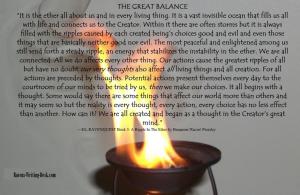
“Listen to the voice of the Creator. He speaks in every breath of every living thing. What has the Creator planted in you? Have you taken time to meditate and hear the voice he casts upon the wind? Have you heard his roar in the waterfall and the water that flows? Though we are many yet we are one. There are those of us who have scales, some skin, some fur, some feathered but we all have the same blood that flows, pumped by the very heart of the Creator. There are warriors and there are poets among us. But I show you a mystery for within every poet is a warrior and in every warrior is a poet. Every warrior does not carry a weapon of steel in his hand or bend a bow. Some carry weapons in the words they speak and write. Can a word be mightier than a sword? I say yea it is so! For every sword raised to defend the innocent, the bearer must first hear a word within. Our thoughts become our deeds. It is the poet that empowers the heart of the warrior. It is the warrior who empowers the heart of the poet. Say not that it is the poet who is weak and the warrior that is strong. Yea, I say unto you they are one and the same. One wields a sword and another a pen but they are one in the heart of the Creator and one in the ether. Ponder these words. Let them be fire shut up in your bones but also let them be a pillow your head rests upon in the darkness and be at peace. Now come. Let us feast together. There is plenty at the table of the Creator. Come one and all. Bring what you have to the table. Call not what you bring small or large, call it not nothing or something just come and be filled.” —Benjamin Raven Pressley
Comparative Table of “Enlightenment” Across Religions


